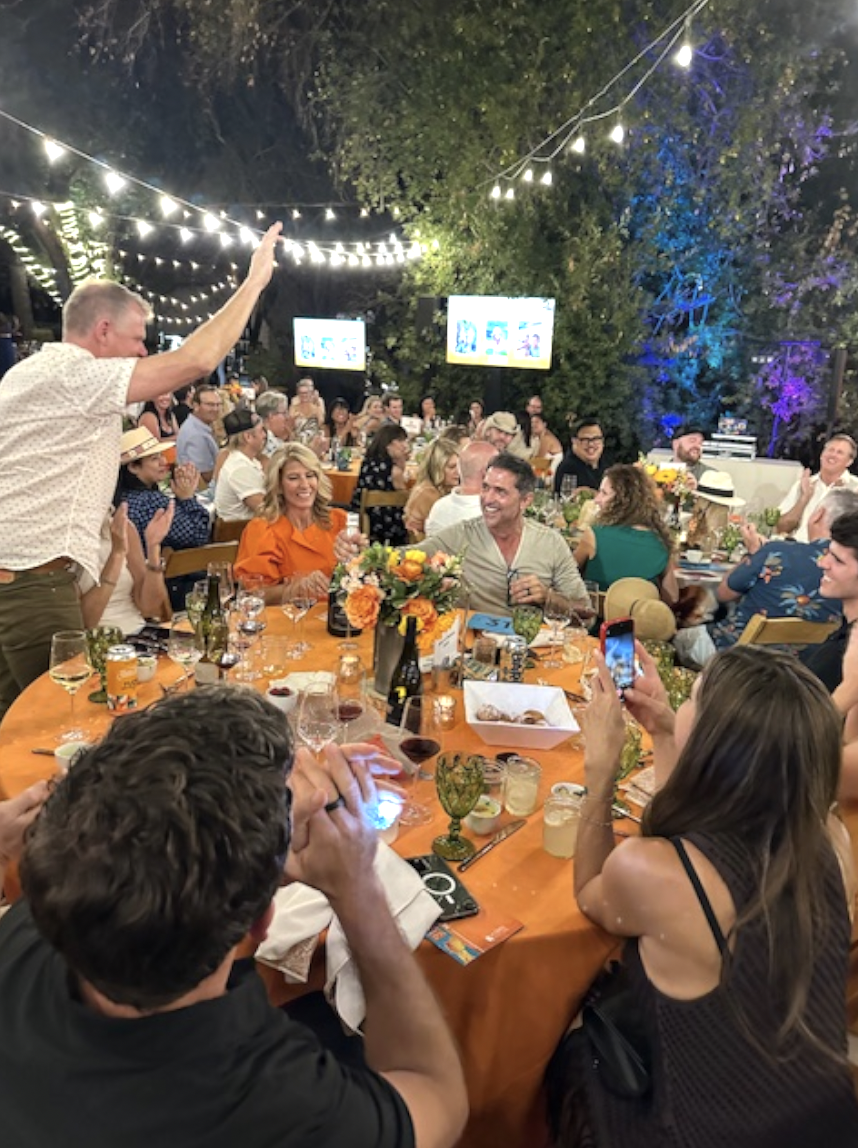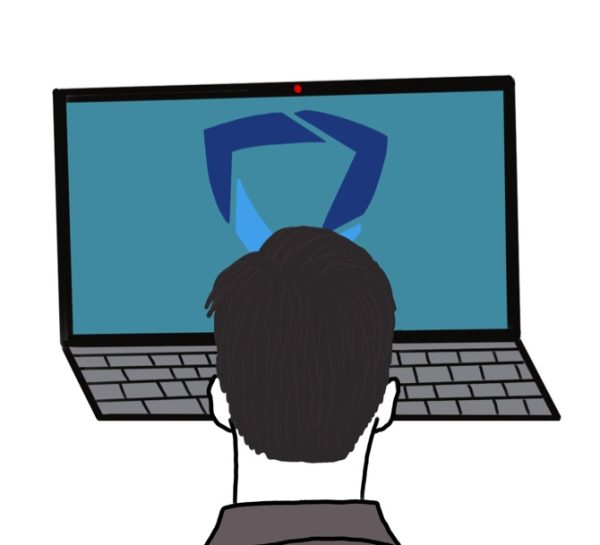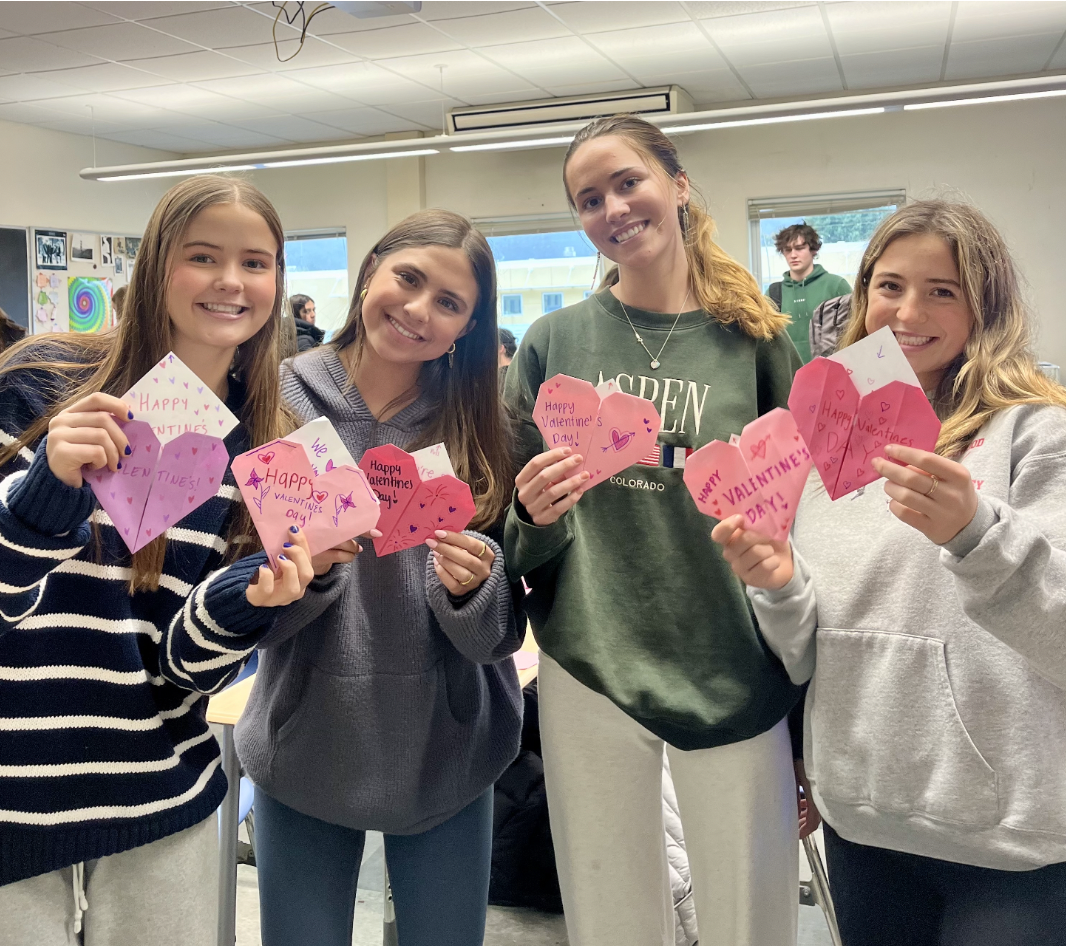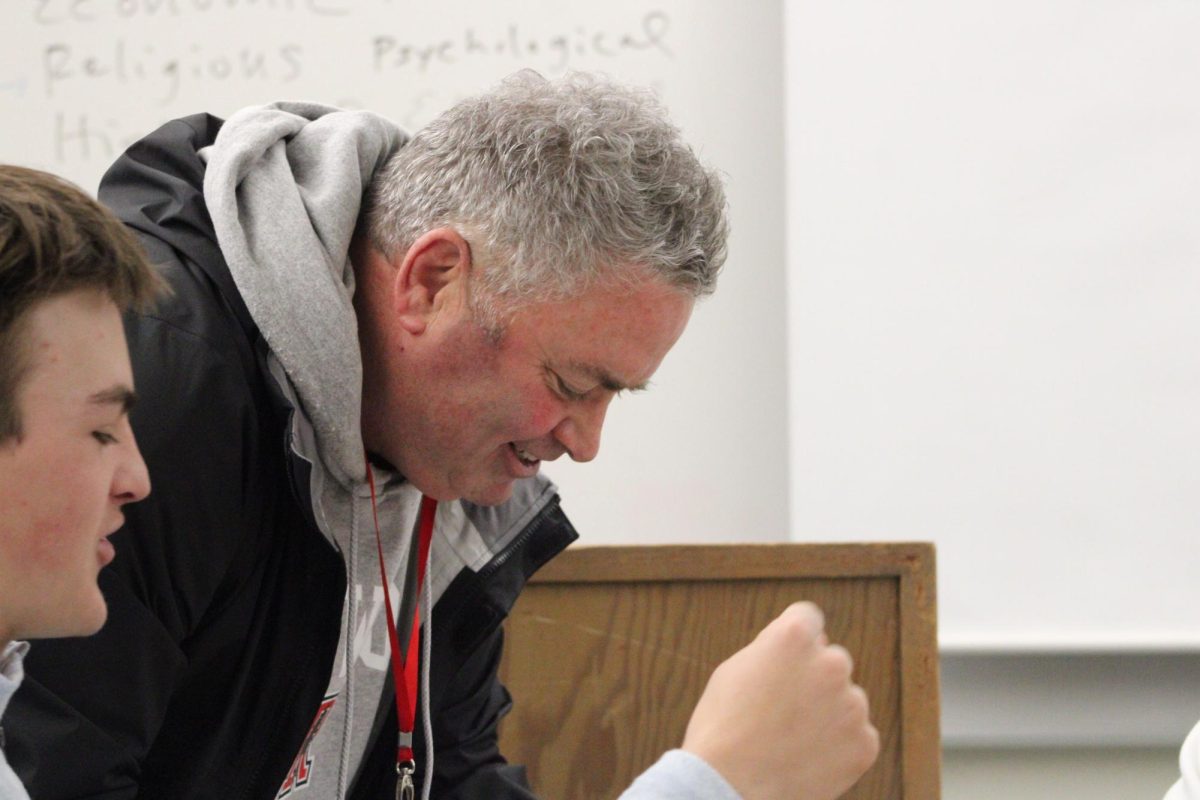Senior Sofia Cassidy has been acting since she was six years old. She has always pictured a career on a stage, and took another step toward her goal last spring when she began auditioning for collegiate theater programs.
Many of the schools she applied to require students to submit a specialized drama portfolio along with their regular application, certain schools allow students to apply to the dramatic arts programs without supplements.

“I started in April. I met with a coach and chose all my audition pieces in April, and since then I have been meeting with the coach once a month,” Cassidy said.
Typically, the process starts the same as any other college application does: the Common Application. After the regular academic application is finished, students fill out a separate portfolio which includes videos of them performing, resumes, and headshots, along with a letter of recommendation from a teacher of the arts, according to senior Paige Colvin.
Cassidy stated that bigger schools often require a pre-screen performance, which is typically sent in as a video and is used to spot potential students with exceptional talent. Those who are called back have in-person auditions.
Regular auditions can take place at the college, but some representatives come to major cities so students don’t have to travel as far, according to Colvin.
It is hard to know what to expect from the auditions, as the audition length varies, said Colvin, who is currently applying for repertory theater.
“One of the schools I’m auditioning for said that the audition is around 10 minutes long, other schools say that you need to be there for about 30 minutes to an hour, just depending on other people and how long they need you,” Colvin said.
Some repertory theater auditions may also include an interview, according to Colvin. The auditions are much different from the type of auditions that Cassidy and Colvin do for productions.
“The scary thing is that for regular shows, you are auditioning for a character in a show. In colleges, you are auditioning yourself. You are showing this is what I can do as an actor and what I hope to bring to your college,” Colvin said.
Colvin added that programs are looking to round out their ensemble, and those auditioning may be rejected simply because they look too similar to someone already studying there.
“If you have something very specific or unique about you this is your time to let it shine. I have a very interesting look, so every person who has helped me prepare for the college process has said, ‘That’s your gold, you need to use that,’” Cassidy said. “You are creating a brand for yourself, and I hate saying this, but it’s basically war.”
Though the process is about showing a college non-academic talents, it is very different from what an athlete’s application process, according to Cassidy.
“With sports you are able to commit before; [drama auditions] are not like that,” Cassidy said. “It’s similar to any other person applying to a college but you have that one additional component which is a factor in the ultimate decision.”
Students often pay a lot of money throughout this process. Cassidy estimated spending between 4,000-5,000 dollars for regular college application fees, travel fees,headshots, and coaching.
Colvin didn’t use a coach and had a friend take the headshot photos; however, she agreed that the process was expensive. Colvin applied to six schools and Cassidy applied to 18.
While both Colvin and Cassidy applied to universities with specific drama programs, senior Sophie Keaney applied to conservatories, or schools which concentrate solely on the arts.
Keaney chose conservatories over big universities like the ones Cassidy and Colvin applied to because of their smaller size. She also felt that the lack of general education classes would allow her to better concentrate on what she actually wanted to study.
Keaney applied for her musical talents, in both singing and violin. She has been playing the violin since she was four, but didn’t decide that she wanted to study music until her sophomore year.
“I got way into singing sophomore year and I think that’s when I decided that was something that I wanted to do with my life,” Keaney said. “Acting as well, but that is kind of on the back burner now that I have gotten into college for music.”
Like Cassidy and Colvin, she started the application process last year.
“I talked to my vocal coach about all the schools I was thinking about applying to and she helped me choose songs and work on them,” Keaney said. “I have only actually auditioned once and it was probably one of the most nerve wracking experiences of my life, just because it was 15 minutes and I was shaking the entire time.”
Keaney has already heard from Berklee College of music, but both Cassidy and Colvin won’t start hearing back from schools until the early spring.







!["I knew I wanted to be a writer. I wasn't a good student [at Redwood], but I wanted to be a writer, and I wanted to paint. I'm self-taught in all of it, which gave me an original voice," Paige Peterson said. (Photo courtesy of Paige Peterson’s website).](https://redwoodbark.org/wp-content/uploads/2025/02/ppeterson.png)



